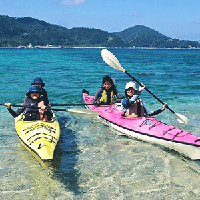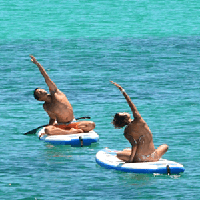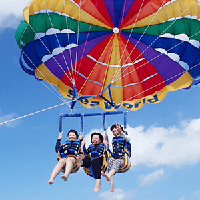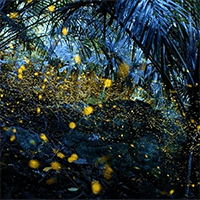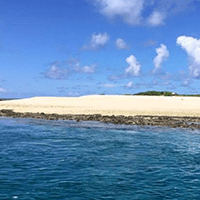Osaka Castle/Kyoubashi/Eastern City in Japanese Castles / Castle Ruins
- Age 6~Age 75
- Within 1 hour
- 10:00 / 11:00 / 12:00 / 13:00 / 14:00 / 15:00 / 16:00 / 17:00 / 18:00 / 19:00
Each kanji character has a meaning, and the appearance of the font is considered beautiful, so ``kanji'' themselves are very popular among foreigners, who often wear T-shirts with large kanji prints on them. Many of you may have seen foreigners with Chinese characters or kanji tattoos on their bodies. The customer chooses such a kanji, and we will explain the calligraphy mindset, tools, and movements, so that they can deeply understand ``Hinomoto Calligraphy'' and write down the kanji they have chosen with a brush.
The staff was very friendly and were genuinely passionate about helping us learn. They were cheering on us and really did their best so that we could have the best experience! The space was beautiful, and we were meticulously cared for. Left the experience excited to tell my friends about it!
- Age 6~Age 75
- Within 1 hour
- 10:00 / 11:00 / 12:00 / 13:00 / 14:00 / 15:00 / 16:00 / 17:00 / 18:00 / 19:00
The calligraphy of death is something that a samurai writes down with a brush as his last words in this world when he foresees his death. (Death refers to leaving this world) Customers can write their favorite kanji. You can select a character (kanji) and write it with an extra-large brush on SAMURAI paper (16 times the size of normal hanshi), which is made by combining two sheets of hanshi paper that is 8 times the size of normal hanshi paper. (Example) Yukimura Sanada's death note, ``If you go to live in an indefinite floating world, you will not know what will happen one day later.'' (In such an unstable world, we do not know what will happen tomorrow. Please think of Naniwa as something that doesn't exist in this world.'' Toyotomi Hideyoshi's deathbed writings, ``The dew falls, the dew falls and disappears.'' I wonder if Naniwa is also a dream within a dream (I became a citizen, but the dew fell and disappeared.) It was a life that seemed to disappear.)
- Age 6~Age 70
- 2~3 hours
- 11:00 / 14:00 / 17:00 / 20:00
Let's learn the bushido and experience the samurai spirit.What is the most important thing for a samurai? Wearing hakama, sandals, and a sword, and learning etiquette, manners, and kata. We call it the BUSHIDO sign.Next, as a BUSHIDO LEARN, you will experience the weight and sharpness of a real Japanese sword. We will learn the basics of swordsmanship (Battou and Nattou).We will take a break with SAMURAI TEA on the way. You will be entertained at a tea ceremony, as samurai risked their lives to "entertain" and "be entertained".Before participating in the final battle of the Warring States Period, the Battle of Osaka, the participants are asked to prepare for death and reflect on their own lives, writing their last words with a large brush on every piece of paper. This is called Deathbed calligraphy.At last, he puts on his armor and helmet to become a bushido master and goes to battle at the castle of Osaka to gain military merit in the battle of Osaka. However, when the defeat was imminent, the samurai, for the sake of honor, would not suffer the shame of the noose, even if they lost the battle, but would die by harakiri or cutting their belly before being captured.
- Age 6~Age 70
- 1~2 hours
- 11:00 / 14:00 / 17:00 / 20:00
Osaka no Jin ⚔ Pilgrimage to sacred places refers to the stages of battles such as the 1614 (Keicho 19) battle "Osaka Winter Jin" and the 1615 (Genna 1) restarted battle "Osaka Summer Jin" and other battles. It is to visit places connected to Osaka Castle as sacred places with “SAMURAI STYLE”. In addition, the term ``Japan's best soldier, who acted with great courage and speed'' in that battle was a name used to praise Sanada Nobushige (Yukimura), who was loyal to his lord, did not betray him even with money or territory, and was close to Tokugawa Ieyasu during the Summer Siege in Osaka. . Yukimura Sanada shined dazzlingly as a Sengoku military commander in the battle that concluded the Sengoku period. His vivid life still fascinates many people today, and let's make a pilgrimage to the sacred place of his glorious battle at Osaka, where he was praised as ``the greatest soldier in Japan.''
- Age 6~Age 70
- 1~2 hours
- 11:00 / 14:00 / 17:00 / 20:00
This is a plan to commemorate and make a pilgrimage to the sad sacred place where SAMURAI and his friends were defeated in the Osaka Siege in the last war and fell to the castle, wearing armor and helmets reminiscent of the battle. ~ A famous castle that records the history of prosperity and turmoil of the people of Japan ~ This is how Osaka Castle is introduced on its official website. However, there was no trace of Osaka Castle, which boasted of being impregnable, as all of the moats other than the main castle and the moat that had been dug back during the peace of Ieyasu's plot at the Osaka Siege were filled in. The Tokugawa army destroyed the Sanada army and invaded the castle one after another, led by the Echizen army led by Matsudaira Tadanao, who was the first to arrive.The fire set by a Tokugawa army informer in the main castle kitchen quickly destroyed the castle tower. Osaka Castle finally fell at midnight on the 7th. When Hinomoto's greatest soldier, Nobushige, was a hostage of the Toyotomi family, he was liked by Toyotomi Hideyoshi, so he was treated more like a vassal than a hostage. The reason Yukimura sided with Toyotomi, who was at an overwhelming disadvantage at the Battle of Osaka, was to protect his loyalty to Hideyoshi. ``This Yukimura was summoned to a place where he was simply trying to prolong his life, and he was given honor as a samurai. This kindness cannot be replaced by land or money. ''When Ieyasu tried to persuade him to defect, he said, ``I have no intention of defecting even if I receive half of Japan.'' ``If you forget your debts and indulge in self-interest, can you call yourself a human being?'' he left behind the words of Hinomoto's greatest soldier.
- Age 6~Age 70
- 1~2 hours
- 11:00 / 14:00 / 17:00 / 20:00
Let's learn the bushido and experience the samurai spirit.What is the most important thing for a samurai? Wearing hakama, sandals, and a sword, and learning etiquette, manners, and kata. We call it the BUSHIDO sign.Next, as a BUSHIDO LEARN, you will experience the weight and sharpness of a real Japanese sword. We will learn the basics of swordsmanship (Battou and Nattou).We will take a break with SAMURAI TEA on the way. You will be entertained at a tea ceremony, as samurai risked their lives to "entertain" and "be entertained".Before participating in the final battle of the Warring States Period, the Battle of Osaka, the participants are asked to prepare for death and reflect on their own lives, writing their last words with a large brush on every piece of paper. This is called Deathbed calligraphy.At last, he puts on his armor and helmet to become a bushido master and goes to battle at the castle of Osaka to gain military merit in the battle of Osaka. However, when the defeat was imminent, the samurai, for the sake of honor, would not suffer the shame of the noose, even if they lost the battle, but would die by harakiri or cutting their belly before being captured.
最近チェックしたプラン
Please wait a moment
![[Osaka Castle] Experience the best calligraphy master class in Hinomoto wearing a kimonoの画像](https://img.activityjapan.com/10/52954/10000005295401_xHdm79c7_3.jpg?version=1720976642)
![[Osaka Castle/Samurai Calligraphy] Before the battle of Osaka no Jin, I look back on my life so far and write the last word in large strokes on every page!の画像](https://img.activityjapan.com/10/52953/10000005295301_xHdm79c7_3.jpg?version=1708436105)
![[Osaka/Osaka Castle] “BUSHIDO Plan” “Bushido is about dying and discovering” Experience the life and death of a samurai. Let's go to Osaka Castle! !の画像](https://img.activityjapan.com/10/52660/10000005266001_lpXgdgDW_3.jpg?version=1706537016)
![[Osaka/Tamatsukuri] Osaka no Jin "Hinomoto's No. 1 Soldier" pilgrimage tour guide (Tamatsukuri area)の画像](https://img.activityjapan.com/10/52625/10000005262501_xEnFGyJR_3.jpg?version=1706264164)
![[Osaka/Osaka Castle] Pilgrimage tour guide to the sacred sites of famous castles that mark the history of prosperity and turmoil among the people of Japan (Osaka Castle area)の画像](https://img.activityjapan.com/10/52567/10000005256701_xEnFGyJR_3.jpg?version=1706257265)
![[Osaka/Osaka Castle] “HONOR Plan” Respectable samurai experience! In order to achieve military success in the Osaka Siege, we will disguise ourselves as military commanders in armor and helmets and go to Osaka Castle! !の画像](https://img.activityjapan.com/10/52543/10000005254301_lpXgdgDW_3.jpg?version=1706535422)


